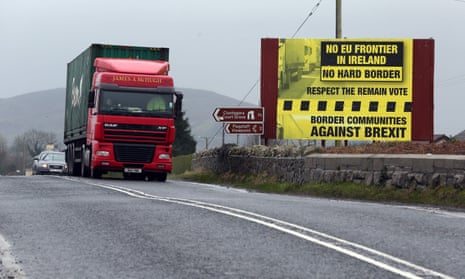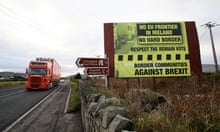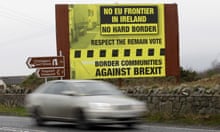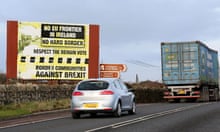The gap in fortunes between the economies of Northern Ireland and Ireland will increase in the next two years as Brexit looms, according to a new report published in Dublin.
Consultancy EY predicts 144,000 new jobs will be created across the entire island of Ireland between 2017 and 2020. However, the vast majority, 138,500, will be in the republic – the population of which is more than twice the size of its neighbour – with just 5,800 jobs in Northern Ireland, said EY.
The EY study added that Ireland’s GDP is expected to grow 4.9% this year compared with 1.4% for Northern Ireland.
Ireland ranks as one of the fastest growing economies in the EU and Northern Ireland ranks as the poorest performing of the 12 regions of the UK in terms of economic growth.
Quick GuideWhy is the Irish border a stumbling block for Brexit?
Show
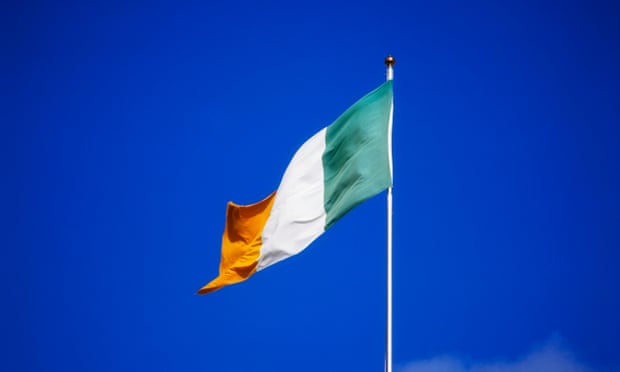
Counties and customs
Inside the EU, both Ireland and Northern Ireland are part of the single market and customs union so share the same regulations and standards, allowing a soft or invisible border between the two.
Britain’s exit from the EU – taking Northern Ireland with it – risks a return to a hard or policed border. The only way to avoid this post-Brexit is for regulations on both sides to remain more or less the same in key areas including food, animal welfare, medicines and product safety.
The 'backstop' in Theresa May's Withdrawal Agreement was intended to address this - stating that if no future trade agreement could be reached between the EU and the UK, then rules and regulations would stay as they are. This has been rejected by Brexit supporters as a 'trap' to keep the UK in the EU's customs union, which would prevent the UK striking its own independent trade deals.
There are an estimated 72m road vehicle crossings a year between Northern Ireland and the Republic of Ireland, and about 14% of those crossings are consignments of goods, some of which may cross the border several times before they reach a consumer. Brexit supporters say this can be managed by doing checks on goods away from the border, but critics say it will be difficult to police this without any physical infrastructure like border posts or cameras, which could raise tensions in the divided communities of Ireland.
Interactive: A typical hour in the life of the Irish border
EY said its forecast brings into focus, again, the implications of Brexit for the region and the impact of the absence of a Northern Ireland assembly to push forward the government spending programme and the national industrial strategy. Neil Gibson, chief economist at EY Ireland, said the Republic of Ireland was “in a position of strength to face the economic and geopolitical uncertainty that lies ahead” with spend from consumers, business and government on a solid footing.
The decline in sterling has helped the competitiveness of Northern Ireland exports, but the economy remains challenged owing to inflation reducing consumer spending and the absence of a government disrupting state spending programmes.
One fillip in the 18 months for Northern Ireland has been the boom in cross-border shopping, which ebbs and flows in line with the sterling-euro exchange rate. The 12% decline in the pound since the referendum has boosted cross-border shopping to around €428m (£378m) this year compared with €385m last year.
Gibson said that “the squeeze on real incomes will soon begin to bite” in Northern Ireland, but this could be offset by the boost to tourism and cross-border shopping that flowed from the decline in the value of sterling.
Michael Hall, managing partner for EY in Belfast said the Irish border agreement struck by the EU and UK on Friday was “undoubtedly positive” for both economies. But he added it was not a reason to relax planning for the worst possible scenario.
He said: “There’s no such thing as being over-prepared when it comes to Brexit.”
